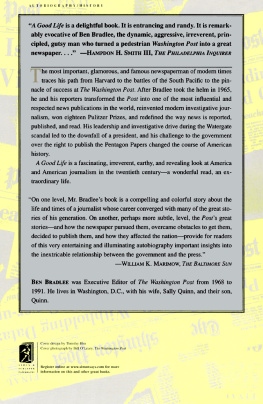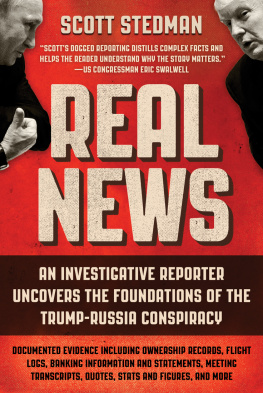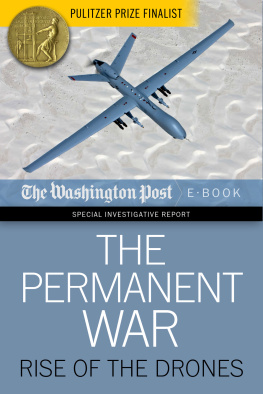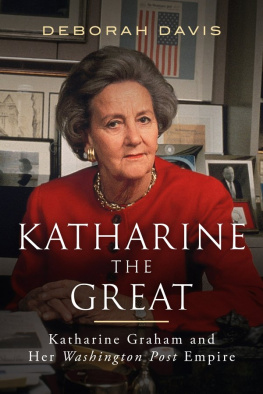
Books by Ben Bradlee
That Special Grace
Conversations with Kennedy
A Good Life: Newspapering and Other Adventures


TOUCHSTONE
Rockefeller Center
1230 Avenue of the Americas
New York, NY 10020
www.SimonandSchuster.com
Copyright 1995 by Benjamin C. Bradlee
All rights reserved,
including the right of reproduction
in whole or in part in any form.
First Touchstone Edition 1996
T OUCHSTONE and colophon are registered trademarks of Simon & Schuster Inc.
Designed by Levavi & Levavi
Manufactured in the United States of America
5 7 9 10 8 6 4
The Library of Congress has cataloged the Simon & Schuster edition as follows:
Bradlee, Benjamin C.
A good life : newspapering and other adventures / Ben Bradlee.
p. cm.
Includes index.
1. Bradlee, Benjamin C. 2. JournalistsUnited StatesBiography.
I. Title.
PN4874.B6615B73 1995
070.41092-dc20
[B] 95-11361
CIP
ISBN 0-684-80894-3
eISBN-13: 978-1-43912-885-5
0-684-82523-6(pbk)
Picture Credits
7: John Phillips, LIFE magazine, Time Inc. 9: Photograph by Jack Wasserman for Vogue, 1944 The Cond Nast Publications. 13, 14: Newsweek. 15, 16: Photo by Cecil W. Stoughton. 17, 18, 24-29, 32, 34, 44: The Washington Post. 19, 45: AP/Wide World Photos. 20: Mark Godfrey/Magnum Photos. 21: Photofest. 22: LExpress. 23: David R. Legge/The Washington Post. 31: Diana H. Walker/Time magazine. 33: Steve Mendelson. 35: Harry Naltchayan/The Washington Post. 38: Photo by Rex Miller. 41: Photo by Nancy Crampton. 42: Photo by Lisa Berg. 43 (bottom): Photography by Steven Brooke. Courtesy Architectural Digest. 1995 The Cond Nast Publications. All other pictures courtesy of the author.
For
Sally and Quinn
who light up my life
CONTENTS

FOREWORD

W hen I was a child, we had to read books in French at home, and I remember one called Les Mmoires dun ne... The Memoirs of an Ass (or Donkey). Except for that, I have always thought of memoirs as the province of presidents and prime ministers, explorers and four-star generals, plus maybe a Secretary of State or two, or a literary lion. It seemed a bit cheeky for a newspaperman to run with such a crowd, especially a newspaperman trained to stay off the stage and keep himself and his feelings out of the story, and especially a native Bostonian newspaperman, trained from birth not to talk about family, money, or sex.
But this is a memoir, pure and simple, memories of the events that have left their mark on me. It is nowhere near a collection of my thoughts on the state of journalism, or on the proper relationship between the press and public policy. Im still collecting themstill changing my mind.
I dared try my hand at a memoir only when I began to realize that I really had been dealt an awfully good hand by the powers that be. A hand that gave me a ringside seat at some of the centurys most vital moments. A hand that allowed me to make an adventure out of the Depression, illness, and war, and a romance out of newspapering. It is called A Good Life because that is what Ive hadand because when I was desperate for a title, David Halberstam said casually, Youve had a good life, Bradlee. Hey, why not call it that: A Good Life? I have thought hard about the role of luck in my life and come to the simple conclusion that I have been wonderfully lucky. To survive polio. To survive more than three years on a destroyer in the Pacific War from Guadalcanal to Japan. To land a job on The Washington Post, after skipping an interview with the Baltimore Sun only because it was raining so hard when my train stopped in Baltimore first. To buy a house in Georgetown a few months before Senator and Mrs. John F. Kennedy bought a house only a few doors away. To try to persuade Phil Graham to buy Newsweek at just the right moment. To find the emerging Katharine Graham looking for an editor at the precise moment when the Post was ready to fly. And most important, to find the most extraordinary collection of newspaper types eager to sign up for the flight.
These newspaper types, now graying, some even gone, are the people I would like to thank first and most for their contribution to this book and to my delight in my working life. Larry Stern, Dick Harwood, Bart Rowen, David Broder, Haynes Johnson, Shelby Coffey, Phil Geyelin, Meg Greenfield, Bill Greider, David Laventhol, Gene Patterson, Bob Baker, Phil Foisie, Barry Sussman, Harry Rosenfeld, Jack Lemmon, Nick von Hoffman, Mary Hadar, Dick Cohen, Len Downie, Bob Kaiser, George Solomon, David Ignatius, Mary McGrory, Mike Getler, Walter Pincus, Chal Roberts, Don Oberdorfer, Murrey Marder, Eleanor Randolph, Myra MacPherson... to name any of them is to risk leaving out someone vitally important to me.
And, of course, the one and only Sally Quinn.
It would be hard to overestimate the contributions to my newspaper and to my time as editor of that extraordinary reporter, Bob Woodwardsurely the best of his generation at investigative reporting, the best Ive ever seen. With his sidekick, Carl Bernstein, and the job they did on decoding the Watergate scandal, they put the Post (and me) on the map in ways that no one could have predicted. And Woodward has maintained the same position on top of journalisms ladder ever since Watergate.
A newspaper is not referred to as the Daily Miracle for nothing. It takes the talents of a great many people working a great many hours at the top of their game before an editor can put his feet on the desk and accept congratulations. With this kind of talent, congratulations are inevitable.
It would be ungrateful of me not to pause here to acknowledge the role of Richard Milhous Nixon in furthering my career. It is wonderfully ironical that a man who so dislikedand never understoodthe press did so much to further the reputation of the press, and particularly The Washington Post. In his darkest hour, he gave the press its finest hour.
Writing is an acquired skill, at least for me. I wrote for almost fifteen years before I felt reasonably sure of turning in a coherent, well-written story. But in the Washington Bureau of Newsweek, even ones most beautiful prose was rewritten by some faceless bastard in New York, and back at the Post I wrote so many leads and headlines that managing editor Howard Simons regularly belittled my writing skills by referring to me as a sprinter. Benny gets lost after the first two hundred words, he said.
In writing this book I had special, quality help from two women who gathered and organized the paper traildetritusof a disorganized life and forced me to think as well as write. First came Barbara Feinman, until she moved on to concentrate on her own career as a writer. She got me focused with skill and humor. Next came Katherine Wanning, whose diligence and patience were awesome. Their help was essential. Tom Wilkinson, my longtime friend and colleague, devoted hours to re-creating with me the sense of excitement in the 1960s and 1970s, and I am especially grateful to him. The same goes for Carol Leggett, secretary and friend, who has been irreplaceable from day one.
Next page








